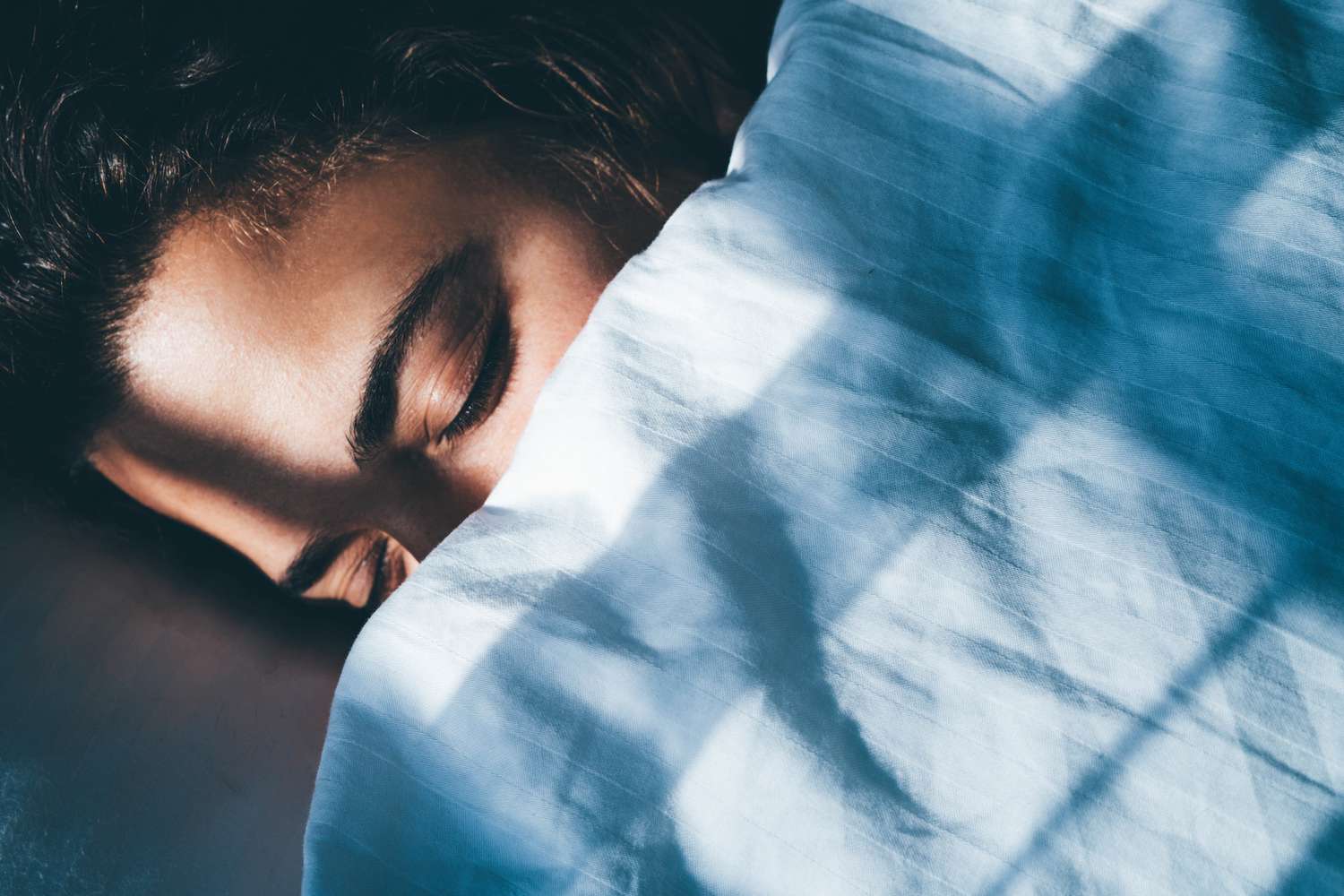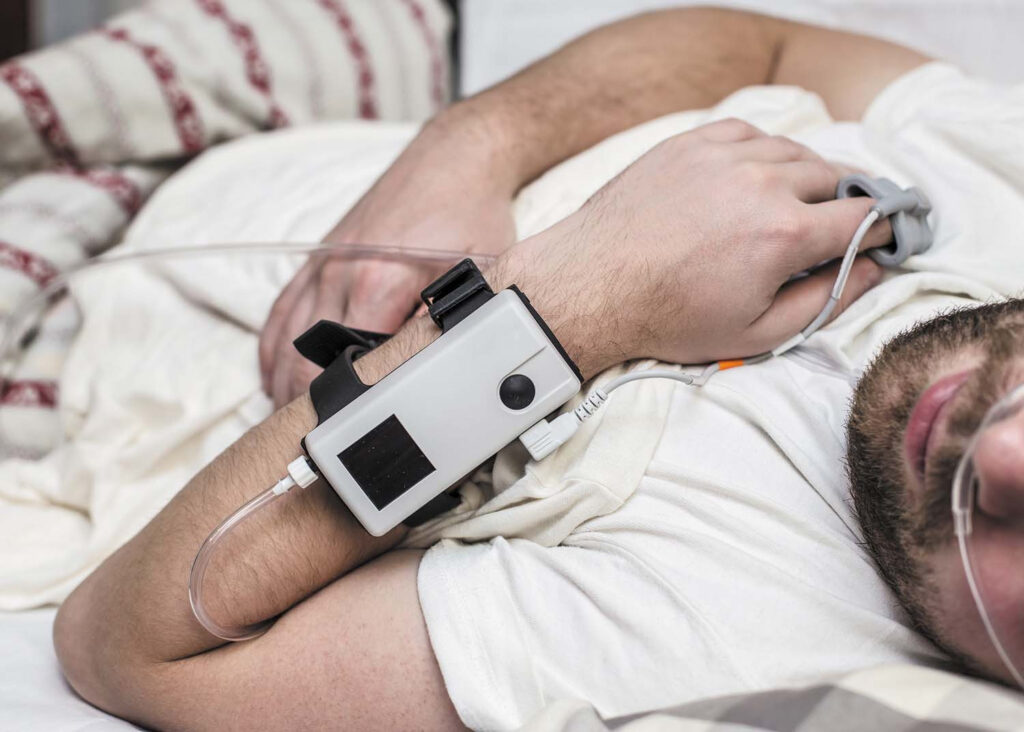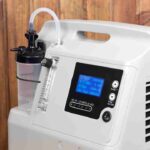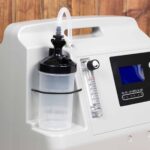Discovering Your Sleep Type: The Benefits of a Sleep Type Test

Do you often find yourself tossing and turning at night, struggling to fall asleep? Or maybe you drift off to dreamland effortlessly but still wake up feeling groggy and exhausted. If either of these scenarios sounds familiar, it’s possible that you haven’t yet discovered your sleep type. Understanding your sleep type can provide valuable insights into your sleeping patterns and help you make necessary adjustments to improve the quality of your sleep. In this article, we will delve into the concept of sleep types, explore the science behind them, and discuss the benefits of identifying your unique sleep type.
Understanding the Concept of Sleep Types
Sleep types are a fascinating way to classify individuals based on their natural sleeping patterns and preferences. Just as some people are morning people while others are night owls, sleep types categorize individuals into different groups based on their optimal sleep-wake schedule and overall sleep quality.
But what exactly determines our sleep type? The answer lies in a combination of factors that have been extensively studied by researchers. Genetics, for instance, play a significant role in determining our sleep preferences. Certain genes can influence whether we are more inclined to be early birds or night owls. However, it’s not just our genes that shape our sleep patterns; environmental factors and personal habits also come into play.
Discovering your sleep type through a sleep type test can be a transformative step towards improving your sleep quality and overall well-being. By understanding your sleep preferences and making necessary adjustments, you can unlock the potential for restful and rejuvenating sleep, leading to a healthier and more fulfilling life.
One key factor in understanding sleep types is the concept of chronotypes. Chronotypes describe our individual biological clocks, which determine our preferred sleep and wake times. It’s like having an internal compass that guides our sleep habits. Generally, there are three main chronotypes:
- Early birds: Those who naturally wake up early in the morning and prefer going to bed early in the evening. These individuals thrive in the early hours, feeling most alert and productive.
- Neutral chronotypes: Individuals who fall somewhere in the middle, not particularly inclined towards being early birds or night owls. They have a more flexible sleep-wake schedule and can adapt to different routines.
- Night owls: People who have a natural tendency to stay awake late at night and struggle with early morning wake-ups. These individuals often find their creative energy and peak productivity during the late hours.
Understanding your chronotype can be a game-changer when it comes to optimizing your daily routine. By aligning your activities with your natural biological rhythms, you can enhance your sleep quality and overall well-being.
Now, let’s delve deeper into the world of sleep types and explore some of the common classifications based on sleep quality and patterns:

Table of Contents
ToggleCommon Sleep Types and Their Characteristics
While chronotypes provide a broad categorization of sleep types, there are also more specific classifications that shed light on different sleep characteristics. These classifications can help us understand our sleep patterns on a more detailed level. Here are a few examples:
- Deep sleepers: Individuals who experience longer periods of deep, restorative sleep and are less likely to be disturbed during the night. These individuals often wake up feeling refreshed and rejuvenated, as their bodies have had ample time to repair and recharge.
- Light sleepers: People who have a more sensitive sleep state, easily awakened by external stimuli. These individuals may find it challenging to stay asleep throughout the night, as even minor disturbances can disrupt their sleep. However, their light sleep state also means they are more alert and responsive to their surroundings.
- Irregular sleepers: Those who have irregular sleep patterns, often experiencing periods of sleeplessness or frequent awakenings throughout the night. These individuals may struggle with maintaining a consistent sleep routine, as their sleep-wake cycles can be unpredictable. However, with proper sleep hygiene practices, they can still achieve restful sleep.
Identifying your sleep type can provide valuable insights into your sleep patterns, enabling you to tailor your sleep habits to meet your specific needs. Whether you’re a deep sleeper who needs a calm and quiet sleep environment or a light sleeper who benefits from white noise machines, understanding your sleep type can help you create an optimal sleep environment and improve the quality of your rest.
The Importance of Identifying Your Sleep Type
Impact on Physical Health
Getting sufficient and quality sleep is essential for maintaining optimal physical health. Your sleep type can influence various aspects of your physical well-being, including your energy levels, immune system function, and the risk of developing certain health conditions, such as obesity, diabetes, and cardiovascular diseases.
By understanding your sleep type, you can make adjustments to ensure you allow yourself enough time to get adequate sleep and create an environment conducive to your sleep needs.
Furthermore, identifying your sleep type can also help you recognize patterns in your sleep behavior. For example, if you are a night owl who struggles to fall asleep early, understanding this preference can guide you in scheduling activities that require mental alertness during your peak hours, thus optimizing your productivity and overall well-being.
Influence on Mental Well-being
Just as sleep affects our physical health, it also plays a crucial role in our mental well-being. Lack of quality sleep can lead to mood swings, increased stress levels, impaired cognitive function, and even contribute to mental health disorders such as anxiety and depression.
Identifying your sleep type allows you to align your sleep routine with your natural inclinations, promoting better mental well-being and emotional stability.
Moreover, understanding your sleep type can aid in establishing a bedtime routine that caters to your specific needs, whether you thrive on a consistent schedule or require flexibility in your sleep patterns. This self-awareness can empower you to make informed decisions about your sleep habits, leading to improved mental clarity and emotional resilience in your daily life. Find more about flexibility on https://health.ucdavis.edu/sports-medicine/resources/flexibility
The Role of a Sleep Type Test
Understanding your unique sleep patterns and preferences is crucial for maintaining good sleep health. A sleep type test serves as a valuable tool in this process, offering insights into your individual sleep needs. By delving into various aspects of your sleep quality, chronotype, and habits, these tests provide a comprehensive analysis of your sleep behavior.
Moreover, a sleep type test can help you uncover underlying issues that may be affecting your sleep, such as insomnia, sleep apnea, or circadian rhythm disorders. By pinpointing these issues, you can take proactive steps to address them and improve the quality of your sleep.
What Does a Sleep Type Test Involve?
A sleep type test typically consists of a series of thoughtfully crafted questions that aim to capture the nuances of your sleep patterns. These questions may cover topics such as your preferred sleep environment, bedtime routines, and daytime alertness levels. By analyzing your responses, the test can categorize you into different sleep types, such as a morning lark or a night owl.
Interpreting Your Sleep Type Test Results
Once you have completed a sleep type test, the next crucial step is interpreting the results accurately. Understanding your sleep type can empower you to make informed decisions about your sleep habits and routines. For example, if you discover that you have a delayed sleep phase, you may benefit from adjusting your bedtime to align with your natural sleep tendencies.
Furthermore, interpreting your sleep type test results can help you optimize your sleep environment. Whether it’s investing in a comfortable mattress, incorporating relaxation techniques before bed, or minimizing screen time before sleep, tailoring your sleep environment to your specific needs can significantly enhance the quality of your rest.
Tailoring Your Sleep Habits According to Your Sleep Type
Sleep Hygiene for Different Sleep Types
Sleep hygiene refers to a set of practices and habits that promote good sleep quality. However, different sleep types may require different approaches to achieve optimal sleep hygiene.
For example, if you are a light sleeper, you may benefit from minimizing noise and light exposure in your sleep environment. Using earplugs or a white noise machine can help create a more peaceful sleeping environment for light sleepers. Additionally, investing in blackout curtains can block out unwanted light, signaling to your body that it’s time to rest.
On the other hand, if you are a deep sleeper, you may need to focus on establishing a consistent bedtime routine to ensure you get enough sleep. Deep sleepers may overlook the importance of winding down before bed, so incorporating calming activities like reading a book or taking a warm bath can signal to your body that it’s time to prepare for sleep.
Adjusting Your Daily Schedule Based on Your Sleep Type
In addition to sleep hygiene practices, you can also make adjustments to your daily schedule to align with your sleep type. For instance, if you are a night owl, you may find it helpful to schedule demanding tasks or creative activities during your peak alertness in the late evening or night. Night owls tend to feel most productive and creative during these hours, so structuring your day to accommodate this natural rhythm can lead to better performance and satisfaction. To read more about alertness click here.
By tailoring your sleep habits according to your sleep type, you can optimize your sleep quality and start each day feeling refreshed and energized. Understanding your unique sleep type and implementing strategies that cater to your specific needs can lead to improved overall well-being and productivity in your daily life.

The Benefits of Knowing Your Sleep Type
Improved Sleep Quality
Understanding your sleep type allows you to create a sleep routine specifically tailored to your needs, resulting in improved sleep quality. By aligning your sleep schedule with your chronotype, you can optimize your sleep duration and minimize sleep disturbances.
For example, if you are a night owl, knowing this can help you schedule your bedtime later to match your natural sleep patterns. This adjustment can lead to falling asleep more easily and experiencing fewer interruptions during the night, ultimately improving the overall quality of your rest.
Enhanced Productivity and Performance
Adequate and restful sleep is essential for cognitive function, focus, and productivity. By identifying your sleep type and implementing strategies to optimize your sleep, you can enhance your daytime alertness and performance levels.
Moreover, understanding your sleep type can also help you plan your day more effectively. If you are a morning person, you may want to schedule important tasks that require focus and attention during your peak hours of alertness, which can lead to increased productivity and better performance outcomes.
Better Management of Sleep Disorders
Sleep disorders can significantly impact your overall well-being. Knowing your sleep type can help you and your healthcare provider develop more targeted strategies for managing sleep disorders, such as insomnia or sleep apnea.
By recognizing your sleep type and any associated challenges, you can work towards creating a sleep-friendly environment that promotes better rest. This may involve adjusting your bedroom setup, incorporating relaxation techniques before bed, or seeking professional guidance to address specific sleep issues effectively.
Other resources: Sleep Apnea Testing in Brisbane Your Complete Guide
Do you often find yourself tossing and turning at night, struggling to fall asleep? Or maybe you drift off to dreamland effortlessly but still wake up feeling groggy and exhausted. If either of these scenarios sounds familiar, it’s possible that you haven’t yet discovered your sleep type. Understanding your sleep type can provide valuable insights…
Recent Posts
 Ultimate Guide to Choosing an Oxygen Concentrator in Australia (2026)ntroduction to Modern Oxygen Therapy For many Australians living with chronic respiratory conditions, maintaining an active lifestyle in cities like Sydney requires more than just medical advice—it requires the right technology. An oxygen concentrator is […]
Ultimate Guide to Choosing an Oxygen Concentrator in Australia (2026)ntroduction to Modern Oxygen Therapy For many Australians living with chronic respiratory conditions, maintaining an active lifestyle in cities like Sydney requires more than just medical advice—it requires the right technology. An oxygen concentrator is […] The Best CPAP Mask Options for New Users and What Makes Them ComfortableSleep apnea disrupts breathing during sleep, causing repeated pauses that prevent restful sleep and strain the cardiovascular system. CPAP therapy delivers continuous pressurized air through a mask, keeping airways open throughout the night and enabling […]
The Best CPAP Mask Options for New Users and What Makes Them ComfortableSleep apnea disrupts breathing during sleep, causing repeated pauses that prevent restful sleep and strain the cardiovascular system. CPAP therapy delivers continuous pressurized air through a mask, keeping airways open throughout the night and enabling […] Oxygen Machine for Home Use: A Complete Guide for First-Time BuyersWhat Is an Oxygen Machine and How Does It Work? An oxygen machine for home use, commonly known as an oxygen concentrator, is a medical device that delivers concentrated oxygen to individuals with respiratory conditions. These respiratory therapy devices […]
Oxygen Machine for Home Use: A Complete Guide for First-Time BuyersWhat Is an Oxygen Machine and How Does It Work? An oxygen machine for home use, commonly known as an oxygen concentrator, is a medical device that delivers concentrated oxygen to individuals with respiratory conditions. These respiratory therapy devices […] Medical Oxygen at Home: Essential Information on Oxygen Tanks, Machines, and TherapiesIntroduction For individuals with chronic respiratory conditions, such as COPD, asthma, or emphysema, medical oxygen therapy at home is often a critical part of maintaining health and improving quality of life. Whether you need an oxygen machine for […]
Medical Oxygen at Home: Essential Information on Oxygen Tanks, Machines, and TherapiesIntroduction For individuals with chronic respiratory conditions, such as COPD, asthma, or emphysema, medical oxygen therapy at home is often a critical part of maintaining health and improving quality of life. Whether you need an oxygen machine for […] Understanding Sleep Apnea: Causes, Symptoms, and Effective TreatmentsSleep is one of the most vital pillars of good health, but for millions of people, restful sleep is harder to achieve than it should be. One of the most common reasons for poor sleep quality is sleep apnea, a potentially serious sleep disorder that often […]
Understanding Sleep Apnea: Causes, Symptoms, and Effective TreatmentsSleep is one of the most vital pillars of good health, but for millions of people, restful sleep is harder to achieve than it should be. One of the most common reasons for poor sleep quality is sleep apnea, a potentially serious sleep disorder that often […] Bulk-Bill Sleep Study Brisbane: Affordable Options for LocalsWhat Are Bulk-Bill Sleep Studies and How Do They Work in Brisbane? Bulk-bill sleep study Brisbane services provide you with direct billing to Medicare, eliminating upfront costs for diagnostic testing. When you receive a bulk-bill sleep study, the […]
Bulk-Bill Sleep Study Brisbane: Affordable Options for LocalsWhat Are Bulk-Bill Sleep Studies and How Do They Work in Brisbane? Bulk-bill sleep study Brisbane services provide you with direct billing to Medicare, eliminating upfront costs for diagnostic testing. When you receive a bulk-bill sleep study, the […] Sleep Apnea Test Adelaide: Early Diagnosis for Better HealthWhat Is Sleep Apnea and Why Is Early Diagnosis Important? Sleep apnea is a serious sleep disorder where your breathing repeatedly stops and starts during sleep. This condition affects millions of people worldwide, yet many remain undiagnosed, missing […]
Sleep Apnea Test Adelaide: Early Diagnosis for Better HealthWhat Is Sleep Apnea and Why Is Early Diagnosis Important? Sleep apnea is a serious sleep disorder where your breathing repeatedly stops and starts during sleep. This condition affects millions of people worldwide, yet many remain undiagnosed, missing […] Sleep Apnea Explained: Causes, Symptoms, and Treatment OptionsIntroduction: Why Sleep Apnea Deserves Your Attention Picture this: you go to bed at a reasonable hour, expecting a full night’s rest, yet you wake up feeling drained, irritable, and foggy-headed. It’s not just “bad sleep” — it could be sleep apnea, a […]
Sleep Apnea Explained: Causes, Symptoms, and Treatment OptionsIntroduction: Why Sleep Apnea Deserves Your Attention Picture this: you go to bed at a reasonable hour, expecting a full night’s rest, yet you wake up feeling drained, irritable, and foggy-headed. It’s not just “bad sleep” — it could be sleep apnea, a […] Top 5 Online Stores to Purchase a Portable Oxygen Concentrator MachinePortable oxygen concentrators (POCs) have become essential devices for individuals with respiratory conditions, providing a convenient and reliable source of oxygen. With the rise of e-commerce, purchasing a POC has never been easier. However, selecting […]
Top 5 Online Stores to Purchase a Portable Oxygen Concentrator MachinePortable oxygen concentrators (POCs) have become essential devices for individuals with respiratory conditions, providing a convenient and reliable source of oxygen. With the rise of e-commerce, purchasing a POC has never been easier. However, selecting […] Portable Oxygen Concentrator Australia: Features and BenefitsIn recent years, the demand for portable oxygen concentrators (POCs) has surged in Australia, largely due to the increasing prevalence of respiratory conditions and the need for greater mobility among patients. These devices provide a continuous supply […]
Portable Oxygen Concentrator Australia: Features and BenefitsIn recent years, the demand for portable oxygen concentrators (POCs) has surged in Australia, largely due to the increasing prevalence of respiratory conditions and the need for greater mobility among patients. These devices provide a continuous supply […]
